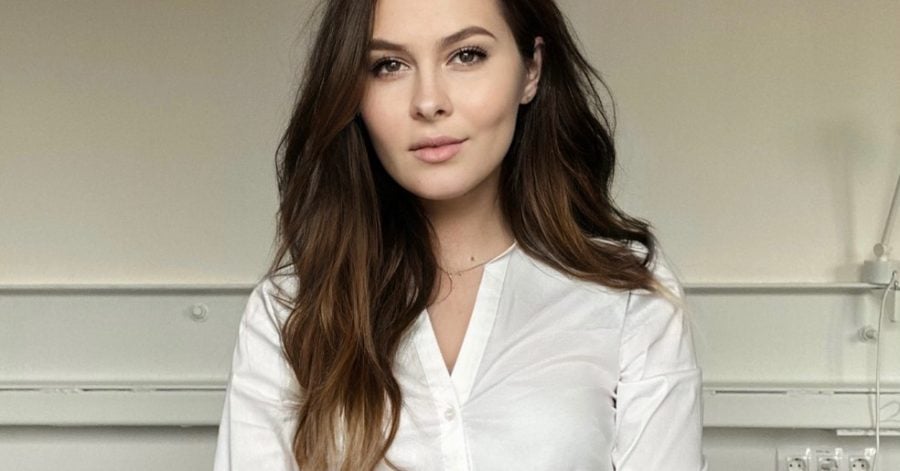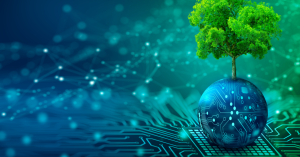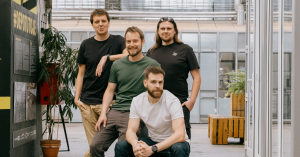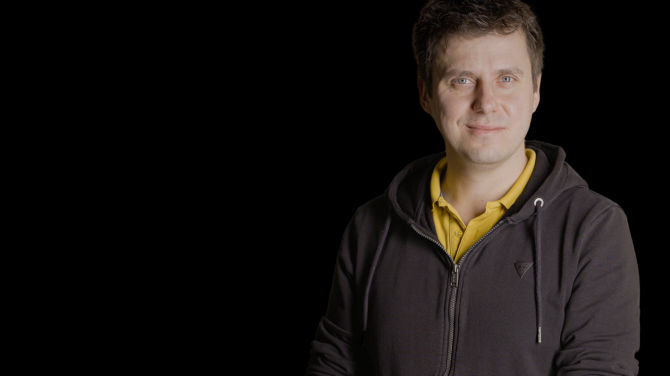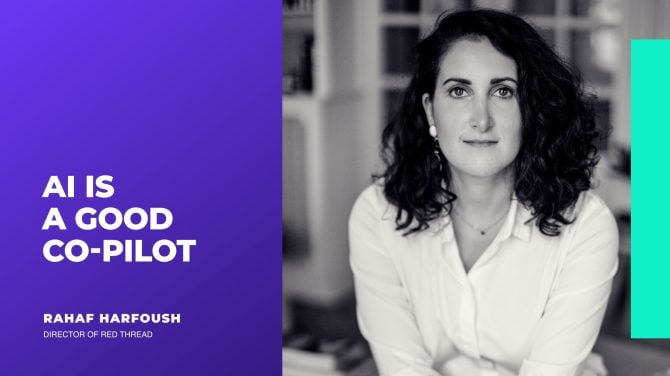One of the most pervasive and enduring sustainability challenges in Romania is waste management. Recycling waste as a part of the circular economy is a top priority for the European Commission. Entrepreneurial mindsets and diversity can bring innovative solutions to the table, especially with such complex issues. Such an example is PolyMore, a startup offering automatic detection of wrongly sorted waste.
In the team’s envisioned solution, technology comes first. A UV camera containing an artificial intelligence algorithm is placed inside sanitation machines to track and analyze its content, as well as further alert recycling companies when they have picked up wrongly sorted waste. This level of visibility can help waste management companies increase the accountability of households and companies.
The idea was developed during Innovation Labs 2020 while the founders were still finishing their graduate degrees. Soon after they won the Future Makers final with the goal of innovating the recycling industry in Romania. Fast-forwarding to May 6, the company has already installed the first prototype for RETIM Ecologic Service SA in Timisoara.
The Recursive talked to Iohanna Maceseanu, co-founder of Polymore, about the company’s solution, as well as how women leaders and experts in cleantech can gain more visibility in the market.
The Recursive: What are the issues with waste management in Romania that you have identified in your journey with PolyMore?
For a better grasp of the recycling industry in Romania, we visited the largest waste management companies in the country. Their purpose is to recover the materials that have further value. In this way, waste management is transformed into resource management – waste becomes a source of raw material. However, the companies we interviewed said only 5% of all waste is currently recycled.
Moreover, the recovery of recyclable materials is often done through manual sorting performed successively by several people. Materials must be sorted manually because most of the waste, especially of municipal sources, is thrown away in a single fraction by the citizens. For instance, recyclables get mixed with biodegradables and unrecyclable waste. As long as the selective collection lacks, i.e. waste is not separated into different fractions, the majority of waste will not be recycled, but instead dumped into landfills or incinerated.
How is PolyMore tackling these issues? What role does cleantech play in enabling better waste management?
As companies developed technologies for better waste management and in the context of shifting societal values, we give more and more attention to the quality of life. Dumping waste in landfill and burning it in the open air are no longer environmentally acceptable practices. We are also aware of the negative effects on our health of toxic emissions from untreated or incinerated waste. Technology plays an important role in increasing the efficiency of recycling materials and reducing harmful emissions
PolyMore addresses the issue of selective collection at the root, making the process more efficient and less expensive for waste management centers. Our solution detects the degree of contamination of recyclable waste and helps waste management companies determine and locate the places where waste was incorrectly collected. The prototype we developed takes real-time snapshots from inside the sanitation machine during the collection process and uses a neural network to determine if the waste is contaminated.
How can we better encourage the promotion and visibility of women business leaders and entrepreneurs working in cleantech?
Waste management is one of the main problems of the modern economy, an international challenge that is intensified by the increasing volume and diversity of household and industrial waste that we discard.
As a society, we must recognize that all contributions to solving this complex challenge must be encouraged. Traditional market barriers must be broken. And cultural and social barriers must not be allowed to affect the ability to involve women in cleantech and entrepreneurship, overall.
Understanding gender roles and dynamics in society, as well as providing ongoing training and education opportunities on topics related to leadership, empowerment, and business can encourage the development of women in entrepreneurship. Given such opportunities, women can gain better visibility in the market. They can also further set an example to other women wanting to enter cleantech, who may feel discouraged in lack of any inspirational figure.
What could women leaders and experts themselves do to promote their contributions more effectively?
First, women leaders should be open and available to sharing their knowledge and experiences to empower others. To that end, they should also remain informed on the latest tendencies and solutions that will have a relevant impact in the field.
This is the digital era, so our impact can be easily traced – we should be aware of this opportunity. Women leaders in any field can easily share their work and achievements through a multitude of digital platforms, whether it is a social media page or a blog. They can share ideas and expertise and build or participate in a community in their respective fields. Finally, women should proactively seek opportunities to join top events and activities in their fields, such as industry meetings and conferences, where they can reach a wider audience.

